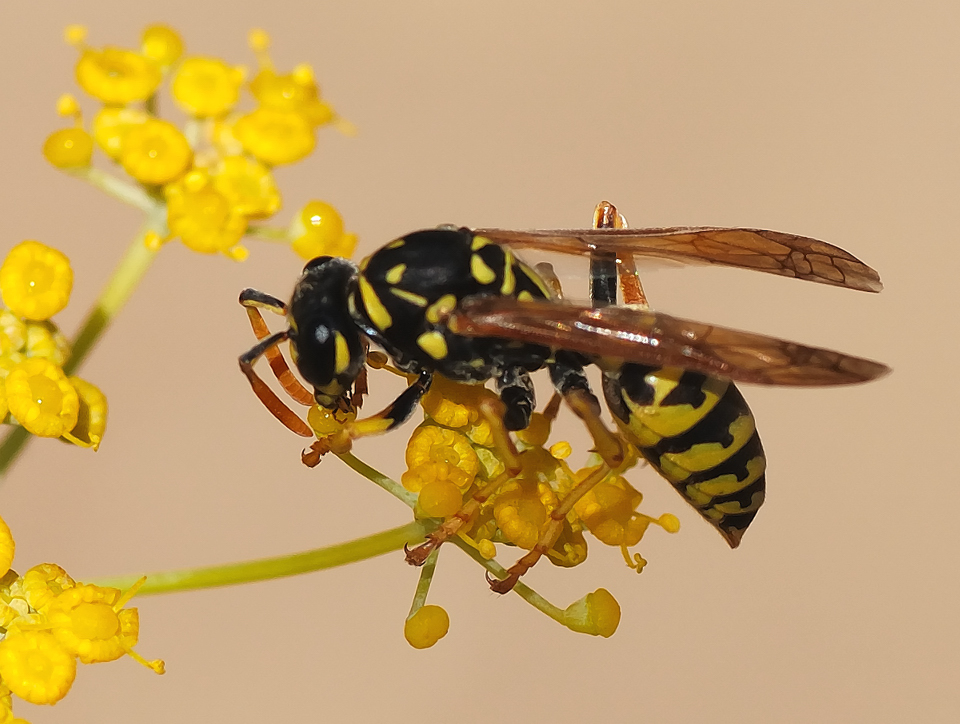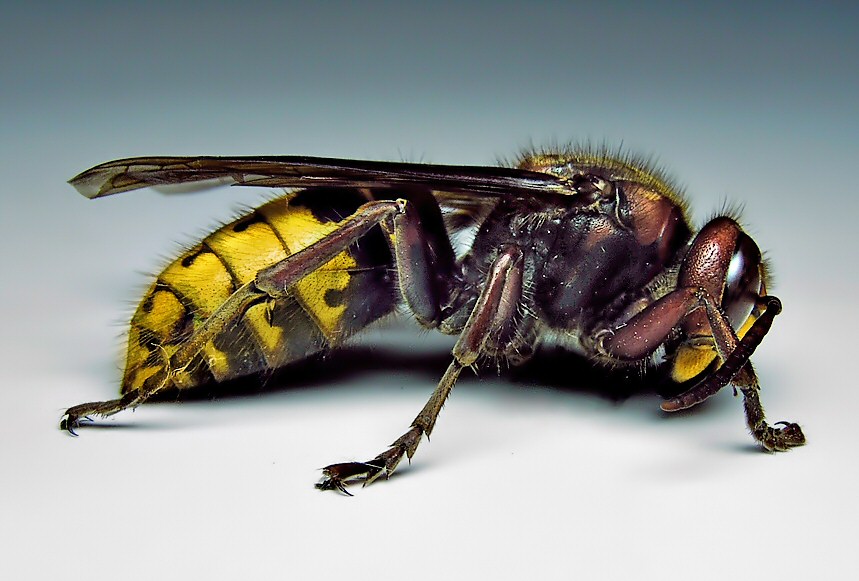My son and I have become bee havers this spring. I use the word "havers" rather than "keepers" since the bees pretty much take care of themselves. We've only been doing this for a couple of weeks so far, but I've already learned much along the way.
It's an interesting and calming activity to share with a kid who has always had a fascination with nature and small creatures.
 Honey bees, for the most part, are docile and will only sting when the hive is under attack or they perceive it to be. There are Africanized honey bees that are more aggressive, but those only survive in warmer climates much further south than Canada. Our bees are a mixture of various European breeds that have been bred locally for several decades.
Honey bees, for the most part, are docile and will only sting when the hive is under attack or they perceive it to be. There are Africanized honey bees that are more aggressive, but those only survive in warmer climates much further south than Canada. Our bees are a mixture of various European breeds that have been bred locally for several decades.
Honey bees are not native to North America, but since their introduction, they have become very important pollinators, and much of our food is the result of pollination of honey and other bee species. They may be known for their honey and wax, but their true importance to humans lies in their pollination abilities.
Many people mistakenly call wasps and hornets bees, but they are very distinct species with different habits.
 |
| Wasp |
_(6134653740).jpg/800px-Paper_Wasp_(Polistes_major)_(6134653740).jpg) |
| Wasp nest--not that it is paper, not wax |
Above are a wasp and wasp nest. Note that the wasp's nest is paper-based, not made of wax, and that while it has hexagonal cells and rows of paper comb, the overall shape looks like a round paper lantern. Below is a picture of a hornet.
 |
| Hornet |
Below are some honey bees on comb, and below them is a bumble bee.
 |
| Honey bees, on wax comb |
 |
| Bumble bee |
If you have bees on your property, do not use insecticides or call a pesticide company. Instead, contact your local beekeeping association and they will very happily remove the bees. Everyone wins as the beekeeper gets free bees and you get the safe removal without the use of toxic products.
Most honey bees are female. There is the queen, who is central to the hive and the only bee that reproduces in most cases (occasionally worker bees can become fertile, but can only lay unfertilized eggs which become drones). The queen is an egg-laying machine who depends on several workers to feed her.
The majority of bees in a hive are worker bees, who take on different roles during their short lives, including nurse bees who feed and care for larvae, foragers, builders of comb, defenders, etc. All worker bees are female.


A small number of bees are males, called drones. Drones are slightly larger than workers, have no stingers, and their only job is to mate with a distant queen.
On our recent visit to the apiary (bee yard), we noticed that the bees at the entry were being groomed by other bees from the hive. This is an important activity as it helps the bees keep down the number of mites in the hive. Varroa mites are a serious threat to honey bees, but healthy hives are able to keep down their numbers through various activities, including grooming.
Some of the bees watched us as we took out frames for inspection to determine the health of the queen. I would guess that they were trying to determine if we were a threat to the brood. Since we moved slowly and carefully and did not threaten the hive, we became more of a curiosity than a threat.
Since these are new hives, it is important for us to know that the queen is healthy and laying new eggs. If she stops, the hive will need to build queen cells and start making a queen. They do this by choosing young larvae to feed royal jelly and bee bread, which is a mixture of pollen, honey and various enzymes. This feeding difference is the key to determining whether a bee will become a queen or a worker bee. Several queens are created. Upon emergence from the cell, the quickest and strongest one fights off the others to become queen of the hive.
Those who have not visited a bee hive may think this sounds absurd, but watching the bees go about their business has a very calming effect on people. It certainly does for me (and I was very hesitant about the whole idea not very long ago!).
Those who have not visited a bee hive may think this sounds absurd, but watching the bees go about their business has a very calming effect on people. It certainly does for me (and I was very hesitant about the whole idea not very long ago!).



No comments:
Post a Comment